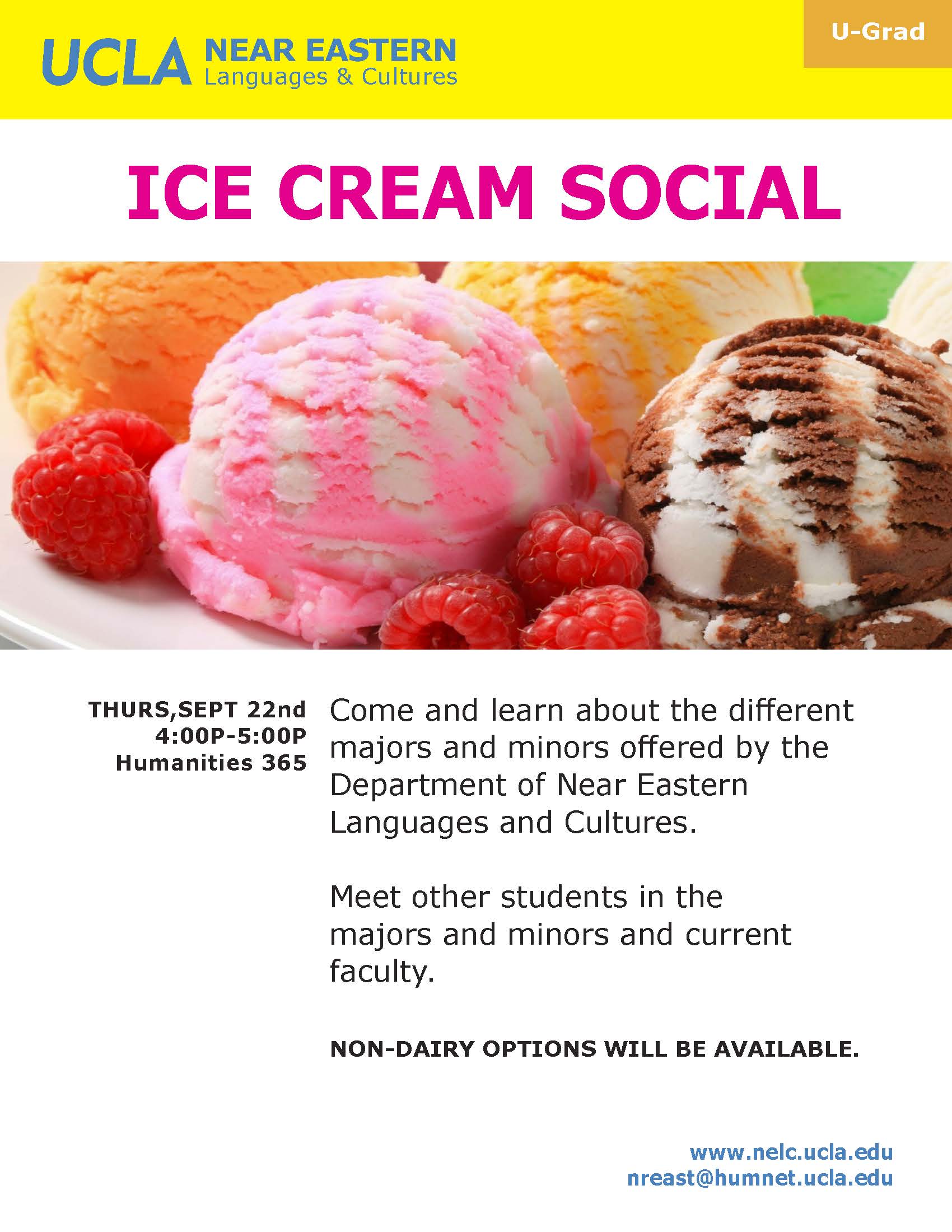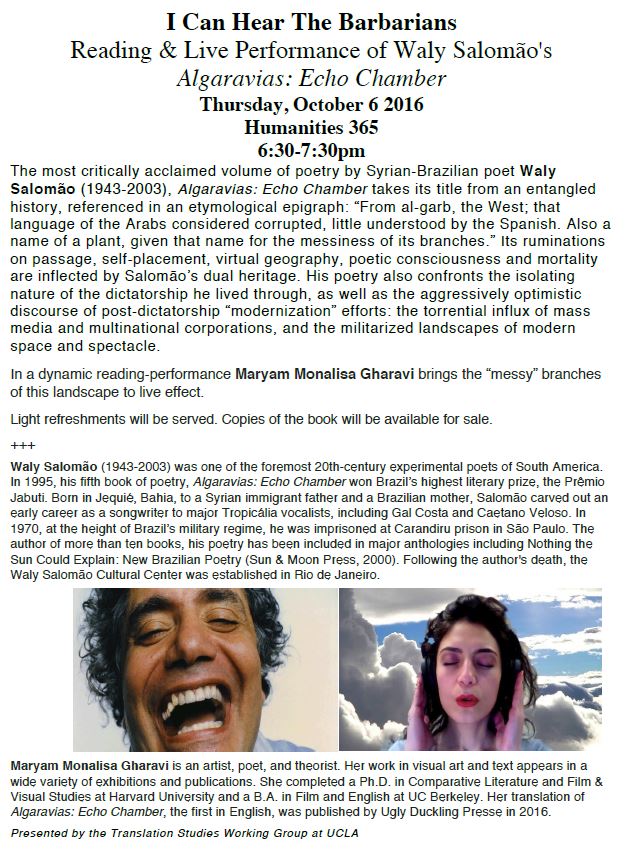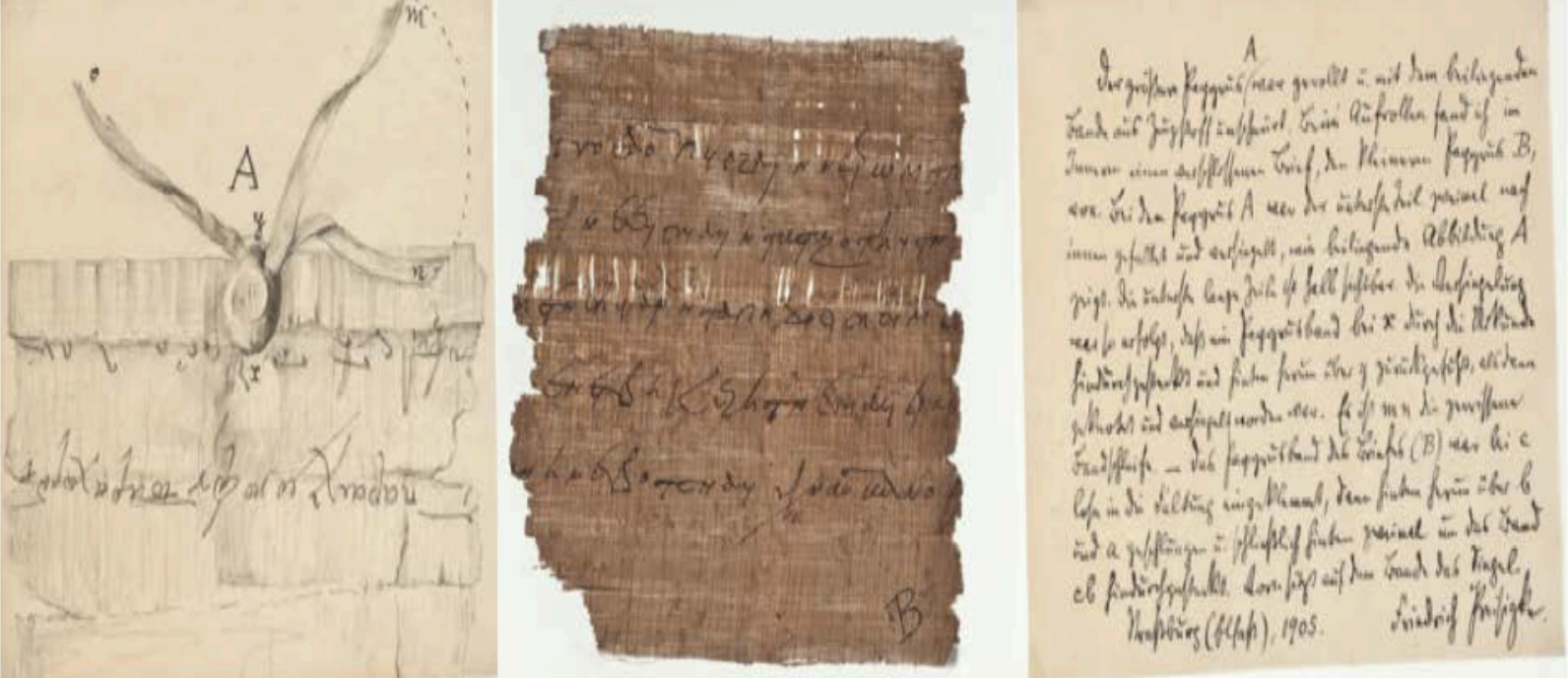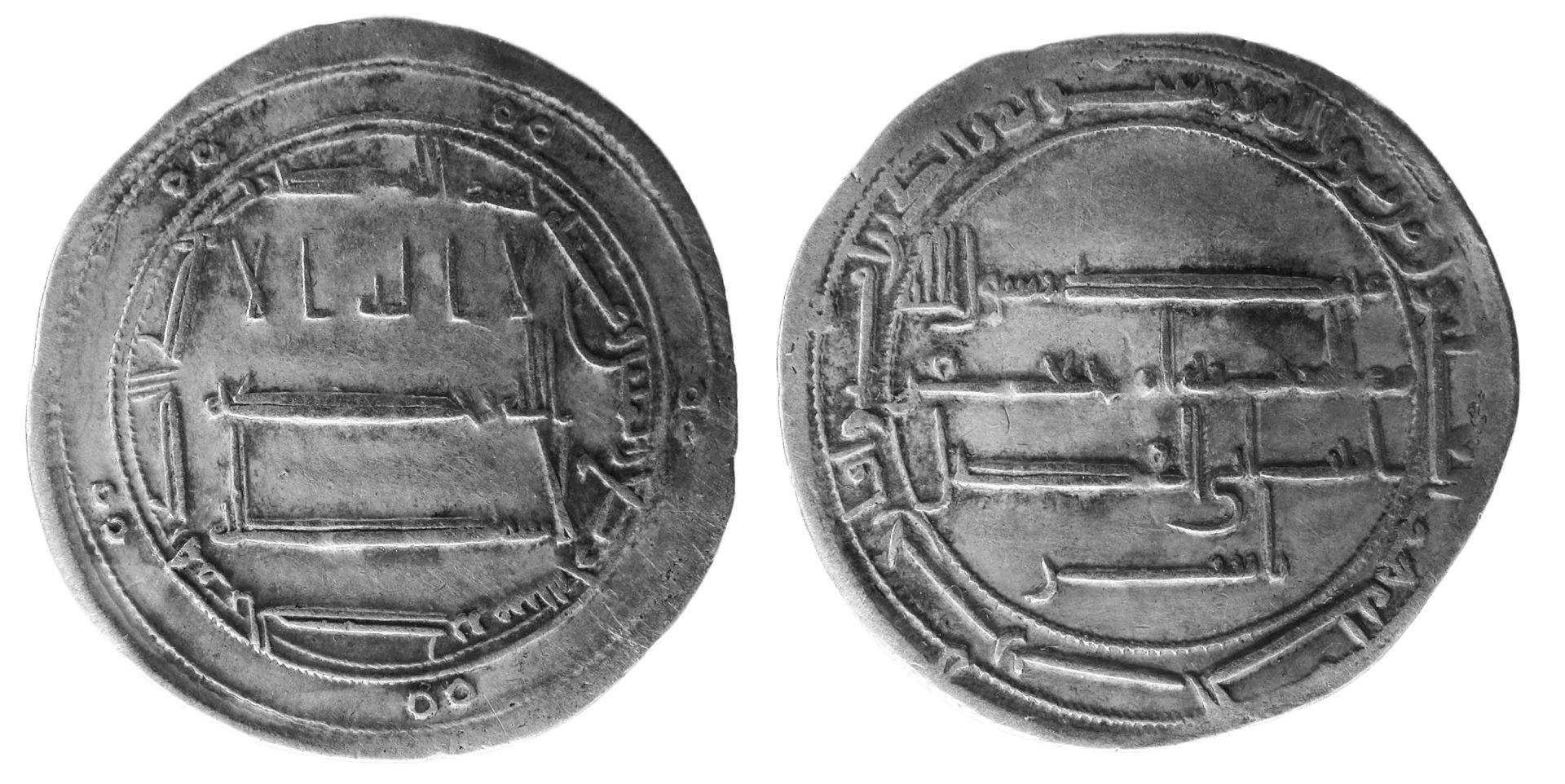Arabic & Islamic Studies
Kitāb al-Ḥayda and Early Ḥanbalī Creeds
NELC Seminar Room (Humanities 365) 365 Humanities, Los Angeles, CA, United StatesAmong Islamic groups, Sunnī traditionalists, especially Ḥanbalīs, were strongly opposed to kalām (dialectical theology). Their condemnation of kalām was such that it became an established article of their creeds. Notwithstanding this official condemnation, there is evidence in their writings that they practiced kalām. For example, Ḥanbalī practices of kalām have been examined in the work...
Undergraduate Ice Cream Social
NELC Seminar Room (Humanities 365) 365 Humanities, Los Angeles, CA, United StatesI Can Hear The Barbarians
NELC Seminar Room (Humanities 365) 365 Humanities , Los Angeles, CA, United StatesMultilingualism in Early Islamic Egypt: The View from Papyri
Kaplan 365After Arab armies conquered Egypt in the mid-seventh century, the country's linguistic landscape changed only gradually. Greek, preeminent for centuries as a language of high culture and governance, faded as Arabic advanced to fill these niches. Coptic, which until then had functioned largely as a vernacular, became in its turn a language of culture and...
Applying for Jobs and Life After the Dissertation
Kaplan Hall 365Join NELC faculty Dr. Cate Bonesho, Dr. Kara Cooney, and Dr. Bill Schniedewind for a workshop and discussion of applying for jobs and life after the dissertation. Event Flyer RSVP Below:
The Uyghur Crisis in China: Adversity, Advocacy, Activism
Royce 314Event Flyer A public event sponsored by the UCLA Islamic Studies Program, the Center for Near Eastern Studies (CNES), and the UCLA Promise Institute for Human Rights Saturday, November 16, 2019 1:30 - 3:30 p.m. UCLA Campus, Royce Hall, Room 314 RSVP to CollegeEvents@support.ucla.edu or 310-825-0913 RSVP is necessary Parking instructions provided upon reservation ...
‘Aqām al-ḥajj Fulān’: The Leaders of Abbasid Pilgrimage in the Early Islamic Annalistic Tradition
365 Kaplan HallThe caliph Hārūn al-Rashīd (d. 193/809) allegedly led the ḥajj nine times over the course of his twenty-three-year reign, in 188/804 he was also the last ʿAbbāsid caliph to lead the pilgrimage rites. The pilgrimage served as a means of legitimation as well as a place of succession and nomination, with Hārūn and his wife...







